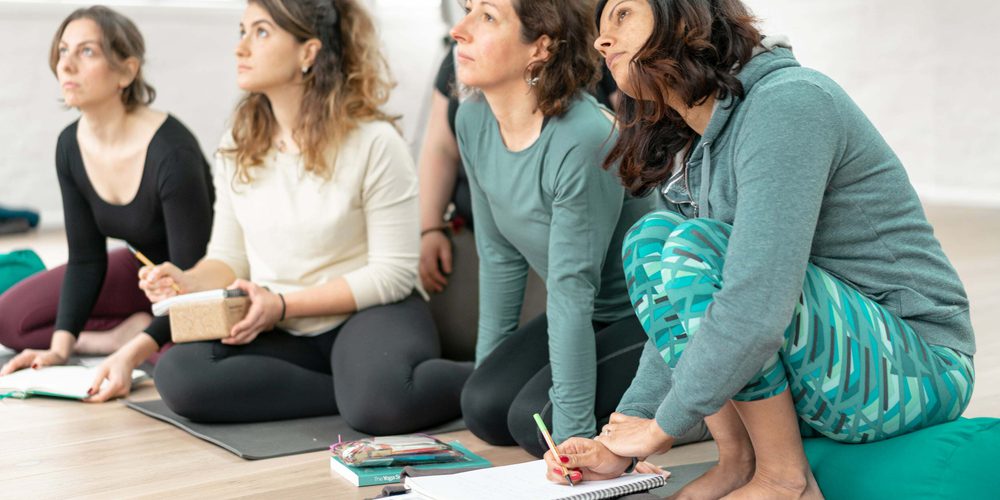Can you believe that this year marks 15 years of the Yogacampus Teacher Training Diploma? Wow! We’ve just started with our 30th intake in London and our reputation has ensured our programme can thrive in York and Manchester too. To celebrate this landmark, we talk to just some of our ever-inspiring graduates!
What makes the Yogacampus Teacher Training course special?
I chose the Yogacampus training because unlike many other courses, it seemed open to yogis from all traditions – not purely Iyengar or Ashtanga etc. I knew I loved yoga and that it had helped me get through some really challenging times but I wanted to find my own way into teaching yoga. I felt Yogacampus would support this and I was right. The teachers were fantastic – there is a solid grounding of practical asana training but equally a very thorough teaching of the philosophical underpinnings of the yoga tradition and its relevance to modern life and practice. Very early on in the training I realised I could use the yoga in a way that would dovetail with my other skills and professional training to help patients and for self-care (I am a music psychotherapist working mainly in palliative care). I also met a really wide variety of people on the course of all ages and experiences which provided valuable peer support and learning. I have since found the staff and management at Yogacampus to be supportive, ethical, and encouraging. Once you train at Yogacampus you join a sangha – a community of open-minded, passionate and supportive yogis who want to do good in the world.
How have you evolved as a yoga teacher since graduating?
So much! It's a classic but it's true that the more you know the more you realise you know very little! You come out of the course with your lesson plans and ideas about how to teach Trikonasana but of course the real teaching comes from the students. Over the years since graduating (2011) I have learned to use my two eyes, two ears and one mouth in that order….. less talking and doing, more watching, listening and sensing. I have really stepped away from thinking of yoga as a series of movements and now mainly teach people living with long term and life-limiting illness – these people (who will never do a standing Trikonasana) are the best teachers and I am always learning from them. In yoga they find a practical toolkit for living well with whatever physical difficulties and losses are being experienced. I have subsequently done a mindfulness training and found many elements here to flesh out the psychological application of yoga – the mindfulness people have yoga as a small element of their practice (mindful movement) and I have tried to take the best from it all (these practices spring from the same root) calling what I teach Mindful Yoga, accessible to all. My strapline is If you can breathe, you can do yoga.
What advice would you give to someone planning to embark on their teacher training journey?
Enjoy it – being taught well and in depth is such a treat! The intensive courses are excellent (I did Judith Lasater’s Restorative yoga which has been so useful and Shiva Rea which was wild!) so choose these wisely if you can…. Often it's about scheduling but make the most of these immersive experiences. Be humble. You may have practised for 20 years or be able to pick your leg up to your ear or have read the Baghavad Gita many times but we are all really beginners and everyone around you on the course has something to give that you can learn from. Lastly, try not to spend too much money in Planet Organic is my main tip – I spent a fortune in there every module!
Kate is a mindful yoga teacher living in Oxford. She works clinically in palliative care settings, and is a senior research associate at the University of Bristol at www.lifeofbreath.com. Kate teaches on the yoga therapy course at Yogacampus and also runs a weekend intensive “Mindful yoga in supportive & palliative care”.
Contact: katebinnie@yoga-voice.co.uk

